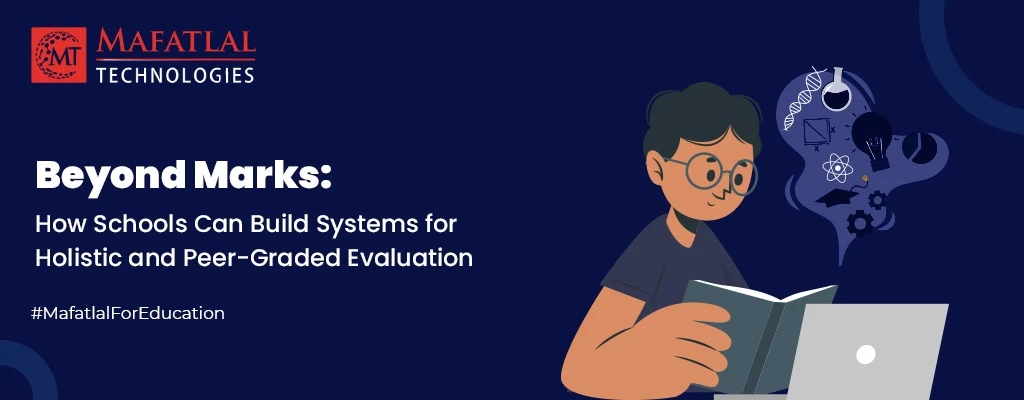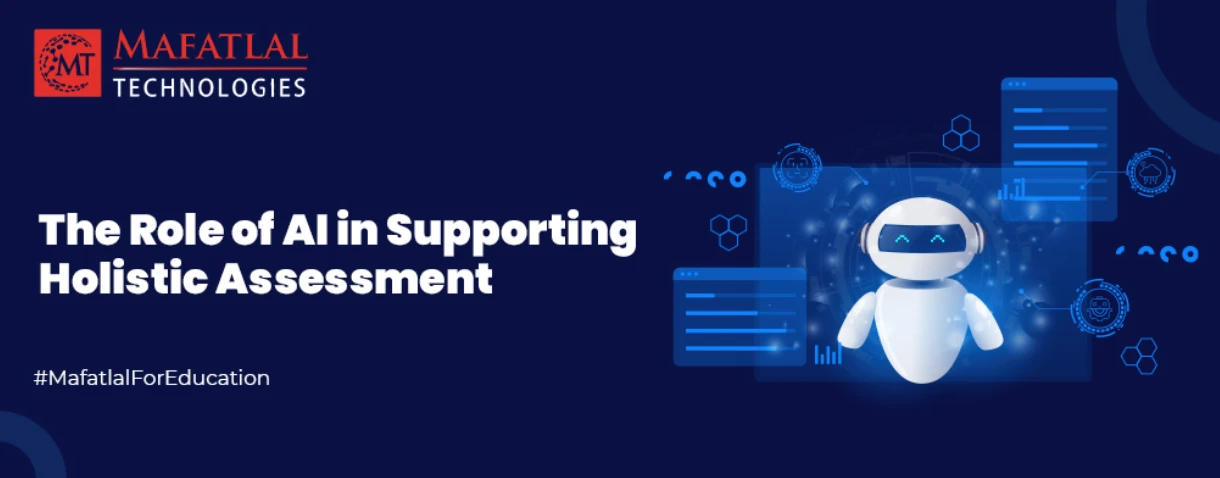
Beyond Marks: How Schools Can Build Systems for Holistic and Peer-Graded Evaluation?
A silent revolution is taking place in classrooms all over the nation. As educators, we have always understood that a child's potential is not solely determined by their grades. However, assessment methods have long been inflexible, centred around tests, and disjointed from actual learning.
Schools now have a rare chance to move beyond grades and towards student-centered grading that fosters accountability, empathy, and lifelong learning skills in light of the NEP 2020 assessment reforms and the increased focus on competency-based learning.
But how can we actually and sustainably make that change?
Rethinking Assessment: What's the Difficulty?
Memorisation is frequently rewarded over mastery in traditional exams. They hardly ever represent a student's capacity for problem-solving, teamwork, or critical thought—all essential elements of 21st-century skills evaluation.
Reflection-based or formative assessment methods are rarely used by teachers due to the demands of covering the curriculum and getting students ready for exams.
However, many students fall through the cracks in the absence of frequent, low-stakes feedback, particularly in classrooms with a diverse student body where each learner advances at a different rate.
The Significance of Peer-Graded Assessment
Imagine a classroom where, under the supervision of the teacher and guided by structured rubrics, students do more than simply turn in assignments; they also evaluate and comment on one another's work. Peer-graded assessments encourage critical thinking, responsibility, and a more thorough comprehension of the material. Additionally, it allows students to participate in the evaluation process, changing the culture from one of condemnation to one of mutual development.
Teachers who have implemented this strategy report increased student engagement and more fluid idea sharing. The focus shifts from competition to community.
The Role of AI in Supporting Holistic Assessment

Assessment is no longer restricted to grades and memory-based exams in the dynamic educational environment of today. Schools are moving towards more comprehensive assessment models that gauge not only academic performance but also teamwork, creativity, emotional intelligence, and critical thinking. However, without the appropriate resources, putting such a 360-degree approach into practice can be difficult.
Here, AI becomes an enabler rather than a substitute. AI-powered solutions enable teachers to conduct more thorough, equitable, and reliable assessments by analysing vast amounts of student data, monitoring behavioural trends, and providing real-time insights.
AI makes sure that every learner's progress is meaningfully—not just quantitatively—recorded, whether it is through the creation of rubric-based evaluations, the identification of strengths and learning gaps, or the facilitation of peer-graded and formative assessments.
Accepting 360° Evaluation: India's Holistic Progress Card (HPC)
An Era of Competency-Based Assessment in Indian Schools
One major change in student assessment brought about by the implementation of NEP 2020 is the Holistic Progress Card (HPC), the NCERT unit for educational standards. Beyond conventional grade-based reporting, HPC offers a comprehensive assessment of progress in academic, socioemotional, creative, and vocational domains.
It includes structured evaluation through:
- Teacher assessments
- Student self-reflection
- Peer review and feedback
The Holistic Progress Card (HPC) model has been used in the Foundational, Preparatory, and Middle stages, and plans are in the works to use it in the Secondary stage as well.
This method helps teachers provide competency-based learning, encourages students to take charge of their own learning, and makes sure that evaluations show each child's overall growth, not just their test scores. This includes their academic, social, emotional, and creative growth.
We at Mafatlal Technologies have seen how AI-based evaluation tools can make this change easier and more interesting. Our platform gives teachers the power to:
- Learning paths that are tailored named
- Automated peer-grading systems that let teachers watch in real time
- Dynamic lesson planning that fits with learning goals based on skills
- Keeping track of outcome-based education by linking each activity to skills and goals
- Real-time data to help evaluate learning outcomes and give personalised feedback
- Formative assessment tools built in, like short quizzes and creative projects
These systems keep each teacher's unique way of teaching while also making it easier for administrators by using smarter, AI-assisted teaching platforms.
Making Dynamic Learning Hubs
We need to make dynamic learning hubs—places (both real and virtual) where reflection, feedback, and working together happen all the time—in order to really move beyond grades. It's not just a matter of switching out tests for projects. It's about making systems that make it easy to look at learning outcomes.
Schools can now align their daily work with the bigger goals of NEP 2020 without overwhelming their teams thanks to hybrid classrooms, real-time AI insights, and tools for student-centered grading.
Today marks the start of a system that is ready for the future.
Education is changing, and our ways of judging it need to change too. Schools can promote competency-based learning over content cramming if they have the right tools and attitude. Schools can:
- Include formative assessments in your daily learning
- Encourage evaluations that are graded by peers to help people think critically.
- Use AI-based evaluation tools to save time and make sure the results are correct.
- Use outcome-based education models to keep track of progress.
Teachers can focus on what they do best—teaching, mentoring, and inspiring—while technology takes care of the rest. Being NEP-ready isn't the only thing this is about. It's about making classrooms that are responsive, based on data, and ready for the future.
Ready to explore how we can assist your school? Book a demo or call +91-22-6901 3918.
